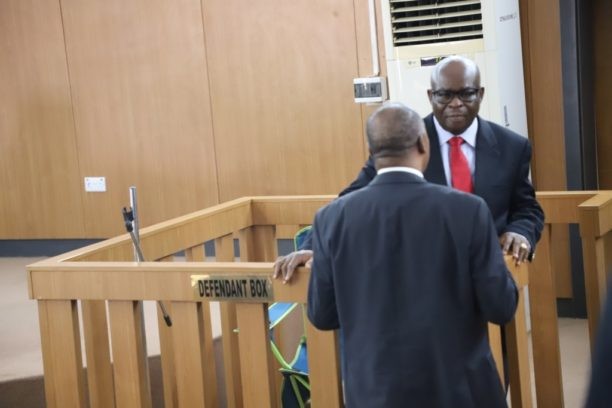There are no products in your shopping cart.
| 0 Items | £0.00 |

 EMBATTLED chief judge of Nigeria Justice Walter Onnoghen has lashed out at the Court of Appeal by refusing to sit on the numerous suits he has filed with them accusing the court of allowing itself to be manipulated and its independence being compromised.
EMBATTLED chief judge of Nigeria Justice Walter Onnoghen has lashed out at the Court of Appeal by refusing to sit on the numerous suits he has filed with them accusing the court of allowing itself to be manipulated and its independence being compromised.
In January this year, President Muhammadu Buhari suspended Justice Onnoghen and replaced him with Justice Tanko Mohammed, who was sworn-in as the acting chief judge of Nigeria (CJN). Over recent months, Justice Onnoghen has been involved in intense political jockeying with the government that involved him being charged before the Code of Conduct Tribunal (CCT) with false asset declaration.
His suspension is the subject of numerous law suits and Justice Onnoghen has lodged several appeals with the Court of Appeal but so far, none of them have been listed for hearing. Yesterday, Justice Onnoghen expressed concern that while political and election matters were treated with dispatch, the Court of Appeal had not been able to give judgment in the appeals he filed six weeks after they were heard.
According to his lead counsel, Adegboyega Awomolo, said: “Whereas political matters and election matters were treated with dispatch, and judgment delivered within hours, the appeal of Chief Justice of Nigeria, six weeks after argument was ordered to be kept away in the file. There is no association of Nigerian judges to speak a word.
“Let no public officer or judicial officer at any level, throw stones because if not all, most are guilty as Onnoghen. Nobody knows who is next, a precedent has been laid and the honourable attorney-general of the federation seems pleased.”
According to Mr Awomolo, his client’s ongoing trial had exposed the Nigerian judiciary to be a weak institution, just as he expressed worry that the Nigerian Bar Association has by reason of personal leadership ambition been rendered ineffective, divided and weak. He also lamented the fact that the framers of the Nigerian constitution, omitted to give sufficient attention to the need for the Code of Conduct Tribunal (CCT) to secure its independence, impartiality and non-interference.
Mr Awomolo said that if the head of the judiciary can be treated the way Justice Onnoghen was, the CCT trial had shown that the judiciary was not independent and the security of tenure of judicial officers is merely wishful thinking. He added that the third lesson is that the case has clearly shown that Nigerian judiciary is very weak, vulnerable and not independent.